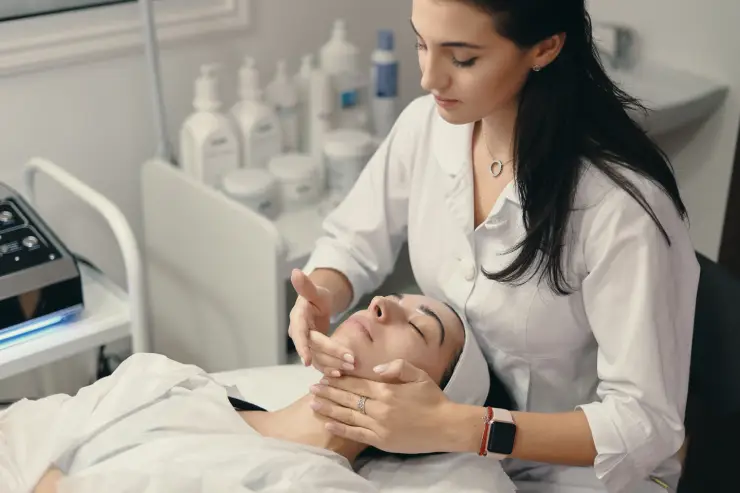Dermatology & Cosmetology

Dermatology and cosmetology are two closely related fields within the medical and aesthetic industry that focus on the health, appearance, and well-being of the skin, hair, and nails. These fields encompass a wide range of medical, surgical, and cosmetic practices aimed at diagnosing, treating, and enhancing the skin’s overall health and aesthetics. Let’s delve into a detailed description of both dermatology and cosmetology.
Dermatology: Dermatology is a specialized branch of medicine that deals with the diagnosis, treatment, and prevention of disorders and conditions related to the skin, hair, and nails. Dermatologists are medical professionals who are experts in identifying and managing a wide range of skin issues, from common problems like acne, eczema, and psoriasis to more serious conditions such as skin cancer and autoimmune disorders.
Dermatology involves several key aspects:
- Medical Dermatology: This focuses on diagnosing and treating various skin diseases and conditions using medical interventions, such as topical medications, oral medications, and light therapies. Medical dermatologists also address issues like infections, allergic reactions, and chronic skin disorders.
- Surgical Dermatology: Surgical procedures performed by dermatologists include the removal of skin cancers, moles, cysts, and other growths. Dermatologic surgery also covers techniques like laser surgery, cryotherapy (freezing), and excisions.
- Cosmetic Dermatology: While cosmetic dermatology does overlap with cosmetology, it primarily involves non-surgical procedures to enhance the appearance of the skin. This includes treatments like Botox injections, dermal fillers, chemical peels, and laser therapy for skin rejuvenation and wrinkle reduction.
- Dermatopathology: Dermatopathologists are experts in diagnosing skin diseases through the examination of skin tissue samples under a microscope. They play a crucial role in accurately identifying skin conditions and guiding treatment.
Cosmetology:
Cosmetology is the study and application of beauty treatments, with a primary focus on enhancing aesthetic appearance. It encompasses a wide range of services and treatments related to skin, hair, nails, and overall beauty. Cosmetologists are professionals trained in various techniques to provide clients with both therapeutic and aesthetic treatments.
Key components of cosmetology include:
- Hair Care: Cosmetologists specialize in hair cutting, styling, coloring, and treatments. They may provide services such as hair extensions, perms, straightening, and treatments for various hair and scalp issues.
- Skin Care: While overlapping with dermatology, cosmetology involves non-medical skin treatments aimed at improving skin texture, tone, and appearance. This includes facials, exfoliation, microdermabrasion, and chemical peels.
- Nail Care: Cosmetologists offer services like manicures and pedicures, nail art, and nail extensions. Nail technicians also address nail health and conditions.
- Makeup Artistry: Makeup application for various occasions, such as weddings, parties, and photoshoots, is a significant aspect of cosmetology. This involves knowledge of different makeup products, techniques, and trends.
- Cosmetic Procedures: Non-invasive cosmetic procedures such as Botox, dermal fillers, and chemical peels are sometimes performed by licensed cosmetologists. However, these procedures are more commonly associated with dermatologists or other medical professionals.
Both dermatology and cosmetology play essential roles in promoting skin health and enhancing appearance. Dermatologists often diagnose and treat medical skin conditions, while cosmetologists focus on providing aesthetic treatments to enhance beauty. It’s important for individuals seeking dermatologic or cosmetic services to consult qualified professionals and understand the scope and limitations of each field.

